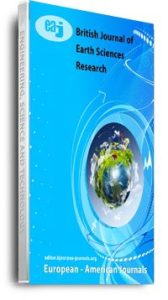Vegetables have positive antioxidative properties and are abundant in vitamins, minerals, and fiber. However, if consumed in large quantities, eating vegetables polluted with heavy metals may be harmful to human health. Therefore, this study assessed the effects of heavy metals on irrigated pepper, cabbage and Irish potatoes grown in Butura. Atomic absorption spectrophotometry (AA240FS) was used to analyze cadmium (Cd), cobalt (Co), nickel (Ni), lead (Pb), zinc (Zn), copper (Cu), chromium (Cr) and arsenic (As) levels. Three samples were selected from each of the vegetables grown on nine selected farms at distances of 0 m, 10 m, and 30 m. This forms a composite sample of vegetables at each farm. The study showed that the concentrations of cobalt, chromium, cadmium, copper, arsenic, zinc and nickel were within the standard limits set by the FAO/WHO, except for lead, which is higher than the allowable limits for vegetables. These patients may have behavioral problems, neurological complications and hematologic disorders. Thus, these findings could lead to a risk for the human population consuming these vegetables. It is recommended that irrigation water and agricultural soils be constantly monitored to determine the concentration of metals accumulated by crop plants to ensure that crop plants are safe for consumption by humans.
Keywords: Bokkos, Cabbage, Heavy Metals, Irish Potato, Irrigated, Pepper, Vegetable

